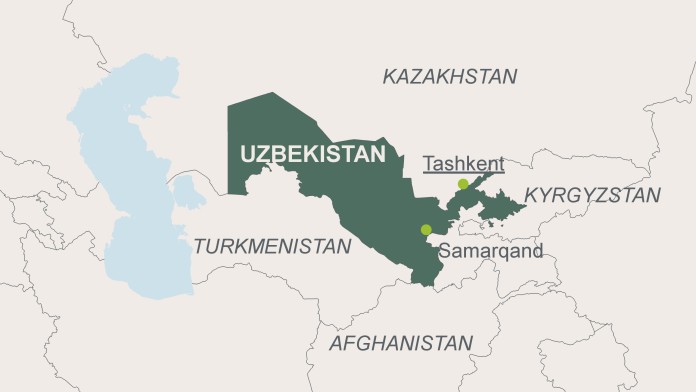

Uzbekistan is a double landlocked country in the heart of Central Asia, at the transcontinental intersection between Asia and Europe. Due to its unique geographical location, population size, potential and non-aligned status, the country plays a key role in the region and is therefore an important partner for German development policy in Central Asia. During President Mirziyoyev’s second term of office, Uzbekistan is continuing its reform agenda, which began in 2016, but which focuses primarily on economic reforms. The exchange rate policy has already been eased, initial steps taken to restructure the government, and measures to improve cooperation with neighbouring states have been taken and successfully implemented with Tajikistan.
Since independence, however, health care in Uzbekistan has deteriorated considerably. The medical infrastructure is based on outdated technologies and associated with high operating and maintenance costs. With an ageing population and a modern lifestyle, the healthcare system faces new challenges today. New diagnostic and therapeutic approaches are needed.
The economy is still dominated by state-owned companies. However, the Uzbek government aims to provide modern health care that meets international standards. The same is true for setting up and expanding small and medium-sized enterprises in the private sector, which is an important prerequisite for further development in Central Asia’s most populous country.
On behalf of the German Federal Government, KfW Development Bank is supporting Uzbekistan in the following policy areas of development cooperation:
KfW’s commitment is primarily focused on modernising hospital equipment, improving mother-child health and continuing to combat tuberculosis, which is still prevalent. The aim is also to improve the training of medical staff to facilitate access to medical services, especially for the poor.
KfW supports Uzbek micro, small and medium-sized enterprises (MSMEs) as well as small-scale farmers to establish better access to and achieve a better offering of medium and long-term loans on a sustainable basis. At the same time, the participating financial institutions are supported in improving their internal lending processes.
To promote the further social and economic development of Uzbekistan, KfW will focus on projects in the area of vocational training in future. The aim is to establish a practice-oriented vocational training system that meets the needs of the labour market and the economy.
KfW also supports infrastructure projects. The focus here is on municipal water systems and energy efficiency in public buildings, which have been identified as core areas of cooperation.
KfW Office Tashkent
Director KfW Office: Dr. Andreas Schneider
7 A., Chimkentskaya Str.
100029 Tashkent
Uzbekistan
+99 871 280 6759
Fax: +99 871 280 6760
